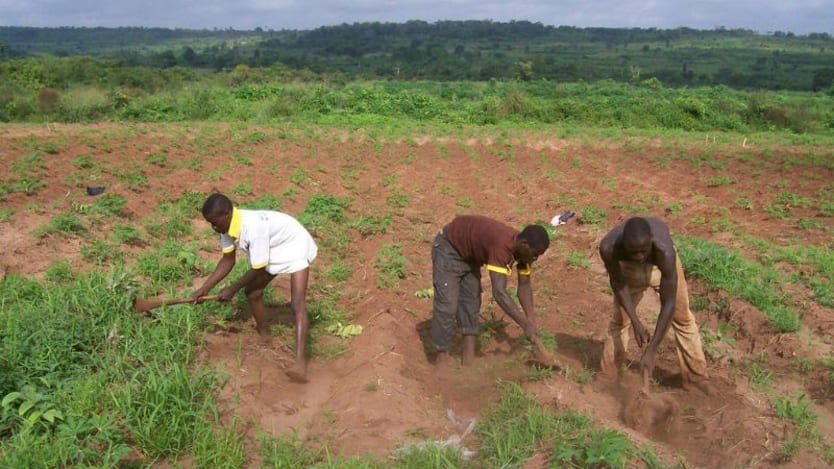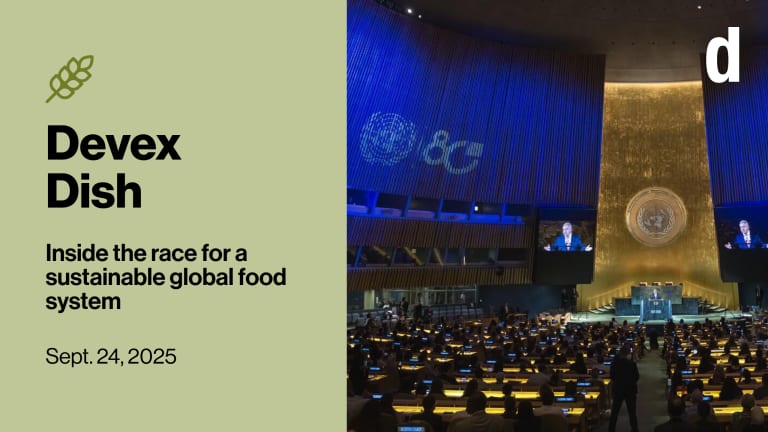
BRUSSELS — A long-standing agriculture center supported by European Union aid will close at the end of the year, it was announced Monday, despite some of its partners wanting to see it stay open.
Its outgoing director is hoping that an organization such as the Bill & Melinda Gates Foundation will be able to continue some of its work, even as the institution itself loses its legal status.
The Technical Centre for Agricultural and Rural Cooperation, or CTA, based in Wageningen in the Netherlands, began working in 1984 to improve knowledge-sharing between people working in agriculture and rural development in African, Caribbean, and Pacific countries.
Its mandate was renewed in 2000 under the Cotonou Agreement, which governs trade, development, and political relations between the EU and ACP states. Since then, CTA has focused on publications, online communities and training, with 19,000 people attending its events between 2011 and 2017. It currently has 51 staff and receives an average of just under €18 million ($19.5 million) in annual funding, mostly from the European Development Fund, which is paid into by EU member states, a spokesperson for CTA told Devex.
Its future beyond the end of the Cotonou Agreement, which ends this year, has been unclear however, while a successor agreement is negotiated. Its mandate was carried over from Cotonou’s predecessor, the Lomé Convention, and some hoped the same would happen again.
But the organization announced Monday that it would close by the end of the year, which it attributed to the end of the agreement that provides its “legal and financial framework.”
“CTA was meant to end at the end of the Cotonou Agreement, but we were not sure of what would be the future — whether the new agreement would include CTA or not,” Director Michael Hailu, whose second five-year term ends Feb. 29, told Devex. “Initially of course, I would have liked to see CTA [carry on] in the future, but that’s not up to me, that’s at the political negotiation level. Once the decision was taken that CTA would end … [I tried to see that] the investment that has gone into building CTA is not lost, the legacy is not lost.”
David Hales, Guyana’s ambassador to the EU and a member of the ACP Committee of Ambassadors told Devex that ACP wants CTA to continue but that the European Commission told them that this was not envisaged in the commission’s negotiating mandate from EU member states.
CTA “has made an important contribution to supporting sustainable and climate-resilient food and nutrition security,” a European Commission official told Devex. However, “we do not foresee the continuation of CTA under a future agreement. The objectives of the CTA can be catered for in the implementation of the future agreement, but this does not require the setup of a complex joint technical body, in particular since the future agreement seeks to provide for a more tailored approach to the three regions of the ACP Group of States.”
The CTA statement explained that “over the next months” it will “explore opportunities with a range of international, national and regional partners that are interested in continuing the institute’s work.” It highlighted its work on digitalization and innovation in particular, such as the Climate, Livestock and Markets, or CLI-MARK, project, which uses data to support pastoralists in Kenya and Ethiopia, and VALUE4HERConnect, a digital platform to support women in agribusiness.
“Especially on the digital agenda there was quite a lot of interest, for example from the Gates Foundation and others who really appreciate the work that CTA has been doing and they see a real need in this area,” Hailu said. “They see CTA as kind of a leading institution where they would have liked to invest to develop this program further, if CTA was going to continue to exist, but unfortunately of course CTA won’t be able to continue its work.”
Stripped of its legal basis, Hailu said, “even if there is strong interest, CTA cannot continue as an institution.”
Exclusive: Gates Foundation launches new agriculture-focused nonprofit
Gates Ag One, a new 501(c)(3), plans to accelerate product development to address the needs of smallholder farmers in a changing climate.
A decision on the Gates Foundation’s possible involvement in continuing elements of CTA’s work has not been made, with a spokesperson for the foundation telling Devex that it “values the work CTA has done in providing insights into the dynamic and rapidly evolving digital agriculture space in low- and middle-income countries.”
Whatever happens won’t be overseen by Hailu, however. On Monday, EU foreign ministers approved Ibrahim Dominic Khadar, the manager of CTA’s learning, monitoring, and evaluation unit, to take up the post of CTA director from Mar. 1 to Dec. 31, after Hailu’s term comes to an end.
Hanna Saarinen, policy adviser on food, agriculture, and land at Oxfam EU, said that CTA had been a good platform for exchanging information but that it promoted approaches “often geared towards supporting farmers and producers who were already better resourced and had better access to information and finance.”
“We look forward to seeing other initiatives that build on the robust heritage of the CTA and that allow for a stronger representation of smallholder farmers and civil society,” Saarinen said.








